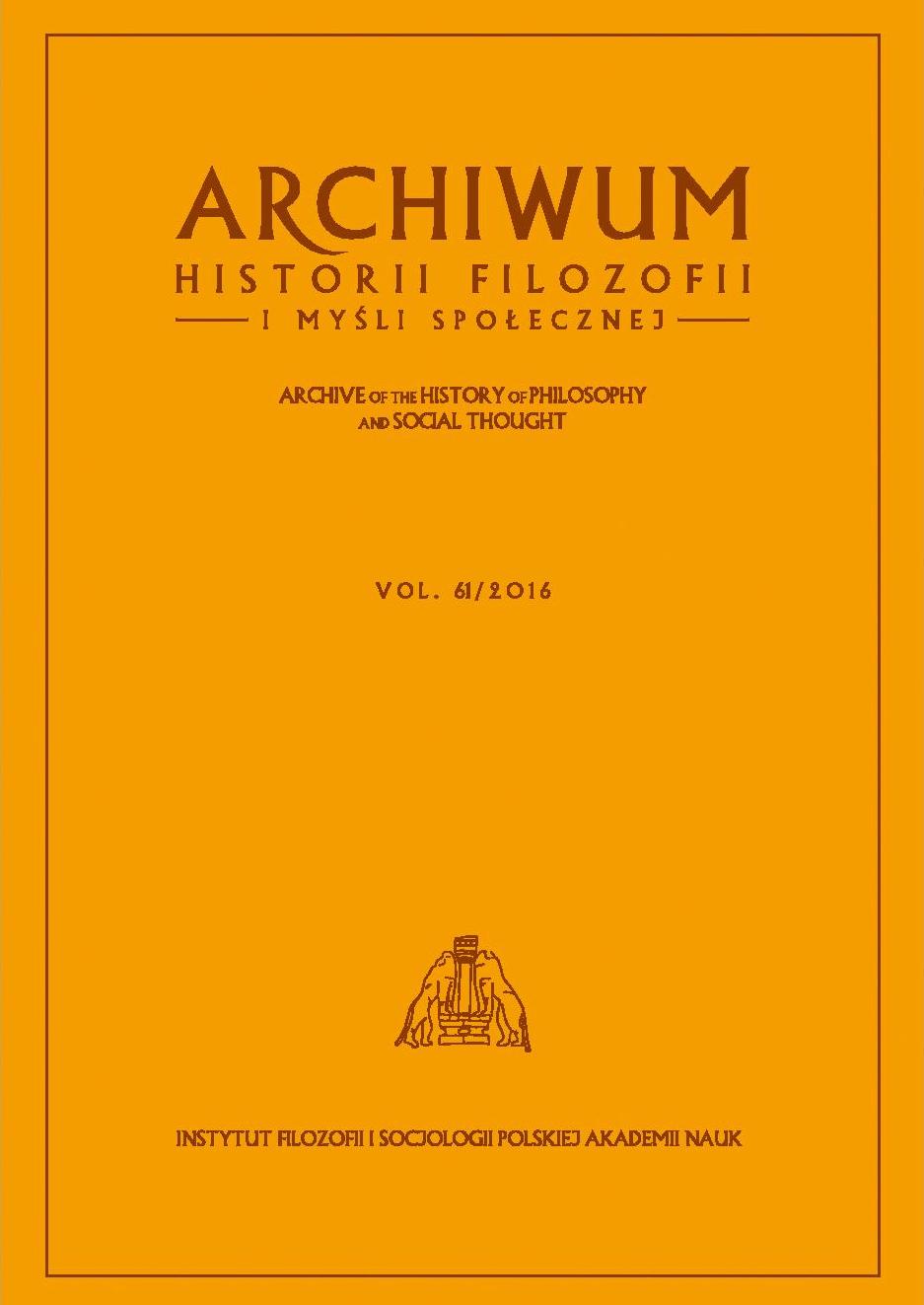Aristoteles in Nietzsches Rhetorik-Vorlesungen: Eine kritische Rückkehr zu antiken Quellen
Aristotle in Nietzsche’s Lectures on Rhetoric: Critical Return to the Antique Roots
Author(s): Kamila NajdekSubject(s): Philosophy, Philosophical Traditions, Special Branches of Philosophy, Ancient Philosphy, 19th Century Philosophy
Published by: Instytut Filozofii i Socjologii Polskiej Akademii Nauk
Keywords: Rhetoric; Aristotle; Nietzsche; democracy; demagoguery
Summary/Abstract: The paper’s point of departure are Nietzsche’s lectures prepared for the students of classical philology. While scrutinizying them I am trying to demonstrate that Nietzsche drew far more from the ancient philosophy than we usually assume. I believe he had a good reason to be concerned with rhetoric, even if the subject was considered of lesser importance in his days and downplayed. By asking about the importance of rhetoric he could, in anexemplary manner, realize the program delineated in his „Untimely Meditations” – he showed certain historical phenomenon, firmly rooted in the past, and confronted it with the contemporary situation; his lectures on the history of rhetoric are used to confront the modernity, as evidenced in his criticism of Victor’s Hugo left -wing demagoguery. Preserved notes and lectures show how young professor worked and the list of those subjectshe was focusing on and those he omits clearly illustrate his philosophical and aesthetic preferences. Fragments of translations of Rhetoric of Aristotle, his way of reasoning and peculiar lack of dispute with the Sophists prove that Nietzsche „enters”, so to speak, in the language of Stagirite, thus taking over his valuation of rhetorical enthymem. Consistent with the intuitions of Aristotle is Nietzsche’s assessment of the social role of the rhetoric itself. In the ideal case it is intended to establish consensus in the situations where it is impossible to know something for certain, in the case of abuse – rhetoric boils down to plain cheating. Nietzsche develops the issue of working out decision by asking about the talk itself and more precisely – about the cognitive status of the language. Lectures also shed new light on Nietzsche’s style, or, if you want, Nietzsche’s styles. On the one hand, they reveal his appreciation for the simplicity and clarity (as evidenced by the attic style preference), on the other hand – they demonstrate his knowledge of the classic figures of thought which means that the so-called „great”, bombastic style was for him a sign of irony. If you follow this path of interpretation, „Zoroaster” would be a reflection of his teachings i.e. as ironic, it would instruct to keep the distance.
Journal: Archiwum Historii Filozofii i Myśli Społecznej
- Issue Year: 61/2016
- Issue No: 61
- Page Range: 309-320
- Page Count: 12
- Language: German

